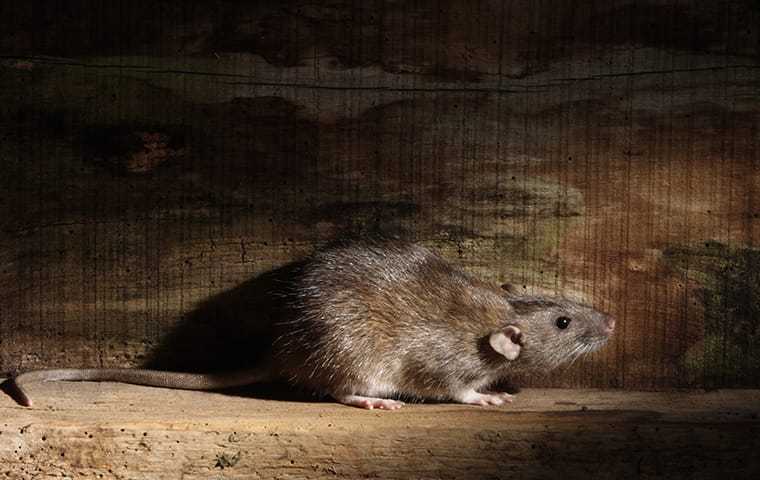Rodent Rundown: Keeping These Dangerous Pests Away From Your Denver Property
Are you someone who might own a rodent as a pet? There are many individuals that might keep a rat, mouse, or hamster as a furry friend. We have no problem with this. In fact, we completely understand why anyone might love a rodent. We also understand why these creatures make terrible pests. Even pet rodents, when allowed to roam freely around homes, cause serious problems.
In order to help you better understand wild rodents and why they are such a problem here in Denver, we will delve into some things you need to know about them in this article. Contact our team at Absolute Pest Control if you are curious to know how we handle these pests. We will run you through your options for pest control in Denver and find a solution that will best handle rodents or other creatures causing trouble on your property.
If you want to know more about these pests, we would like to share some things with you today. Here is what you should know about rodents and how to stop these potentially problematic pests from creating a nest in your Denver home or business.
What Are Rodents?

Before we talk about the problems rodents cause, we think you should know more about these local creatures. A rodent has four legs, a furry body, and sharp front incisor teeth. Some rodents, like beavers, have extremely strong teeth that can gnaw down trees. Other rodents use their teeth to chew holes through walls, floors, and other barriers. All rodents must chew on something. If they do not, their teeth will grow uncomfortably long and become problematic when they try to eat.
There are three types of rodents that commonly cause trouble for locals here in Denver. We are talking about rats, mice, and squirrels.
Mice are small rodents with plump bodies. They are agile on their feet and can squeeze through holes the width of a nickel. Rats are about twice the size of mice and have plump hind sections. They can also squeeze through small holes and will sometimes use their agility to climb the exterior of buildings to find higher-up entry points, which they can use to invade.
Squirrels are the largest and most agile home-invading rodents in our area. They are also the least likely to invade a building because of what they eat. Unlike rats and mice that can live on a diet of pretty much anything, squirrels only eat veggies, nuts, fruits, flowers, and other local plants. These bushy-tailed rodents mostly invade homes and businesses to take shelter from unfavorable conditions outdoors.
There are many reasons why rodents might decide to invade your home or business. The three main things that draw these pests indoors are food, things to drink, and shelter opportunities.
Rats and mice can eat a wide range of items ranging from normal human food to things like rotting meat, decaying vegetation, and fecal droppings. They find tasty treats inside trash cans, on countertops, under sofas, and in a variety of other locations indoors.
As for shelter, rodents gravitate to secluded areas where they can go undetected. For this reason, rats and mice love basements, storage rooms, and attics. These pests might also take shelter inside your wall voids if they provide enough space. While establishing a nest indoors, these pests might tear up things like insulation, fabrics, and paper to build a comfy home for themselves. This is just one side of the damage these creatures cause when they take residence inside local homes and businesses.
Rodent Infestations Are A Major Health Risk
Rodents are not just destructive; they are also a direct threat to health. Squirrels are the least dangerous wild rodents and are unlikely to get you and your family sick.
Mice and rats are much more harmful and likely to spread sickness inside your home or business for one simple reason. Mice and rats eat things they should not and live in nasty environments that leave their fur teeming with bacteria and other disease-causing organisms.
These pests mainly spread diseases by rubbing their dirty bodies over countertops and defecating and urinating indoors. You might contract a harmful sickness from these pests by interacting with a contaminated surface or consuming food or a beverage tainted with urine or fecal droppings. Some of the most common diseases mice and rats spread include hantavirus, salmonellosis, and Lassa fever.
There are more ways than one to get sick when rodents are around. Along with transmitting diseases from the bacteria and pathogens on their bodies, rats, mice, and squirrels can also get people sick with the pests they carry. We are talking about fleas and ticks.
Fleas and ticks are two parasitic bugs that climb into the fur of rodents, feed on them, and use them to get around. Once inside your home or business, these smaller biting pests will hop or drop off invading rodents and find their way to you, your loved ones, and your pets.
Some common diseases you might contract from fleas and ticks include Lyme disease, Rocky Mountain spotted fever, tularemia, and murine typhus. In addition to making sure your pets have proper flea and tick prevention, you should ensure your home has protection against rodents.
Let’s take a moment now to talk about DIY control options and what professional methods work best to combat active rodent infestations.
Simple Rodent Exclusion Tips That Work
At this point, you should have a good understanding of why rodents do not belong inside your home or business. What you need now are solutions to get and keep these pests out. Which methods you use will depend on whether you are currently dealing with an active infestation.
Find out if your home or business has a rodent infestation by checking for common signs of these pests. Look for signs of fecal droppings, grease marks, odd rustling noises, damage to walls, severed electrical wires, damaged plumbing due to gnawing, torn fabric and paper, and other similar damage. You can also bring in our team of pest control professionals to spot an active rodent infestation inside your home or business.
After you know that rodents are not inside your home or business, your next step is to make sure these pests stay out. You can partly do this using prevention methods. Here are some simple rodent exclusion and prevention tips our team recommends you know and implement:
- Walk around your home’s exterior and look for gaps, holes, and cracks that rodents might exploit to get indoors. Seal these up using pinches of steel wool and some silicone caulk. Liquid cement can also be effective.
- Inspect all of your exterior doors and windows. Make sure they are all in good working condition and that their screens, door sweeps, and weatherstripping are in good order. When you are not using unscreened windows and doors, keep them shut.
- Keep your interior spaces as clean as possible and address food and drink messes as they occur.
- Store all your food inside airtight containers, including leftovers, pet food, and pantry items. Another thing you can do is invest in rodent-proof pantry shelves.
- Make sure your home or business is tidy by organizing storage rooms, cleaning up clutter, and investing time into organizing interior spaces.
- Identify and address moisture problems inside and around your home or business by repairing damaged pipes, fixtures, and gutters or simply eliminating moisture buildup.
Keeping up with DIY rodent control is not easy. You should also keep in mind that these tips and tricks will do nothing to stop active infestation. If you are dealing with these pests indoors or are looking for a more effective way to stop an infestation, bring in our team at Absolute Pest Control. We have everything you need to prevent these and other local invasive pests.
The Best Rodent Control Solution For Your Property
Absolute Pest Control has been helping members of our community fight back against pests like rodents for over 30 years. We have perfected our service options to ensure our clients can identify, avoid, and eliminate local pest threats, including rodents.
If you suspect mice, rats, or squirrels have taken shelter in your home or business, do not worry. We are here and ready to help. Start by scheduling your property for a thorough inspection to allow our team to identify the severity of your infestation and locate where these pests are hiding. We will utilize advanced, effective bait, trapping, and other rodent control methods to get these invasive creatures out quickly.
With all of this, we will make sure that you understand how our methods work and what we plan on doing to handle rodents inside or around your home or business.
Reach out to our dedicated team of technicians at Absolute Pest Control to learn more about our advanced service offerings. We will answer questions you have about rodents and walk you through what a treatment visit looks like for your Denver home or business.
I had the pleasure to work with Justin and he was extremely professional and took the time to answer all of my questions. He put me at ease on all the steps he was going to take in order to get my home back to normal. I would recommend him and Absolute Pest Control to my family and friends.


